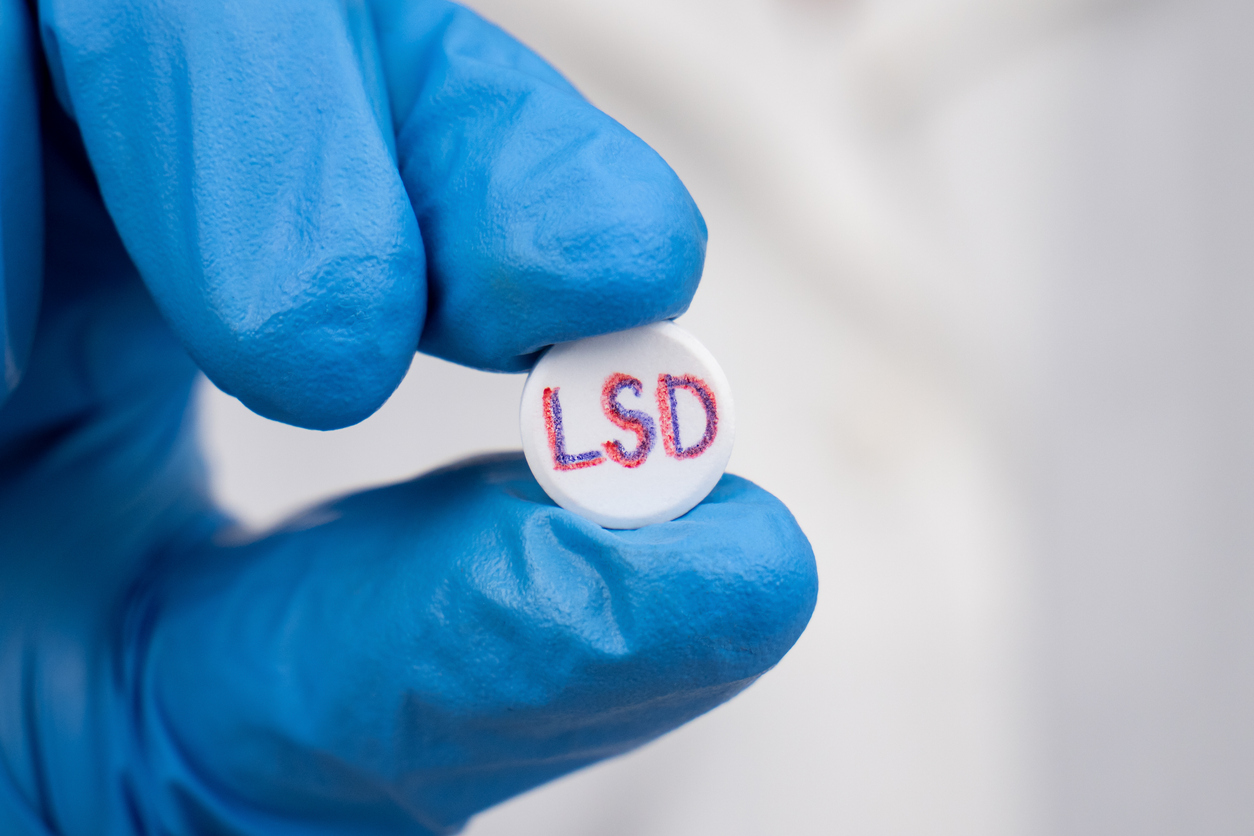LSD (lysergic acid diethylamide) is a powerful psychedelic substance that was first synthesized in 1938. By weight, LSD is one of the most powerful controlled substances in the world, with a gram (the amount in a sugar packet), containing 10,000 standard doses. Although arrests for LSD are not as common as arrests for other controlled substances, arrests for possession of LSD in the Houston area do occur. Under Texas law, possession of any amount of LSD is a felony with potential for prison time and a permanent felony conviction. Although the stakes for possession of LSD can be huge, it is possible to protect your freedom and future from a conviction.
How is possession of LSD punished in Texas?
Under Texas law, controlled substances are placed into different “penalty groups” that have different sentencing ranges based on the amounts allegedly possessed. Under Texas Health and Safety Code 481.1021, LSD is a penalty group 1-A substance. Unlike most drugs, LSD is not punished by weight, but by “abuse unit.” An abuse unit is defined as a single “unit” (or dose), or quarter inch section of blotter paper (if not perforated), or 40 micrograms of the controlled substance if it is in liquid form.
Under Texas Health and Safety Code 481.1151, the possession of LSD is subject to the below sentencing ranges based on “abuse units”:
-19 or fewer abuse units: State jail felony punishable by 180 days to two years in State Jail.
– 20 to 79 abuse units: Third-degree felony punishable by 2-10 years in prison.
-80 to 3999 abuse units: Second-degree felony punishable by 2-20 years in prison.
-4000 to 7999 abuse units: First-degree felony punishable by 5-99 years in prison.
-8000 or more units: Enhances first-degree felony punishable by 15-99 years.
Under Texas Health and Safety Code 481.1121, this sentencing range also applies to cases alleging the manufacture or possession with intent to deliver LSD.
What are some defenses to the possession of LSD?
In any controlled substance case, the first thing a drug possession attorney should do is challenge the legality of any detention, stop or search. Under the Constitution of Texas and the Constitution of the United States, evidence that was seized illegally cannot be used against a defendant in a criminal case. This means that if the police had no valid reason to detain, stop or search you, the evidence in your case could be suppressed and not permitted to be used against you in a possession of LSD case.
In order to challenge the legality of the police’s actions, your drug possession attorney should obtain all of the evidence from the State, including the police report, videos, witness statements and search warrants (if any). A drug possession attorney should carefully go through each stage of the case to see if the police exceeded their authority to act. In order to be able to effectively challenge the legality of the police’s actions, your attorney should be knowledgeable in this area of the law, which is very specialized and constantly changing.
Next, a drug possession attorney should challenge whether the State can prove that a defendant knowingly possessed LSD. Although it is not required that the State of Texas prove ownership of LSD, it is required that the State have enough evidence to prove that a person knowingly possessed LSD beyond a reasonable doubt. In order to prove possession, the State may try and use a defendant’s statements, or the facts and circumstances of an arrest. Just because a person is arrested for possession of a controlled substance doesn’t mean that prosecutors can establish the element of knowing possession.
How can you get a possession of LSD charge dismissed?
LSD cases can be dismissed for a variety of reasons, and an effective drug possession attorney can make a dismissal more likely by aggressively challenging the evidence. Essentially, possession of LSD cases can be dismissed because of either legal problems or factual problems with the case. By proving that the police violated a defendant’s Constitutional rights, or by showing that an affirmative link between the LSD and the defendant cannot be established, it may also be possible to obtain a dismissal.
Even if there is not a legal or factual problem that requires the dismissal of the charges, a possession of LSD case might still be dismissed through a pre-trial diversion. In the Houston area, many District Attorneys offices are willing to offer some first-time drug possession defendants dismissals if they complete programs known as pre-trial diversions. These are essentially contracts with the prosecutor that a case will be dismissed if a defendant completes certain requirements, like community service and drug classes. Although it is better to obtain an unconditional dismissal of a possession of LSD case, a program like this is a good option to have.
If a possession of LSD case is not dismissed, a defendant will have to choose between a trial and a plea agreement. It is impossible to know at the outset what will happen in a particular case, and it is critical to have an experienced drug possession attorney to advise you on whether to accept a plea or go to trial, if your case is not dismissed.
Attorney Jose Ceja is an experienced drug possession attorney with extensive experience with all aspects of drug possession cases. After graduating law school, Mr. Ceja was a felony drug prosecutor and has handled thousands of drug possession cases in his career. If you have been arrested for possession of LSD or any controlled substance in the Greater Houston area, call Ceja Law Firm today.
